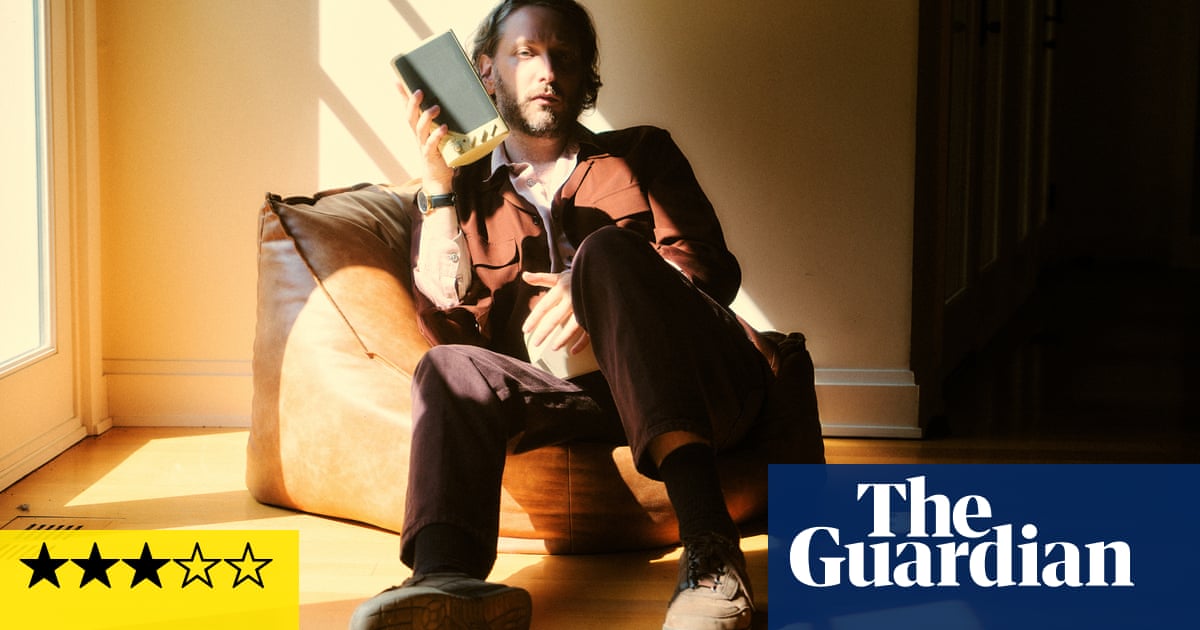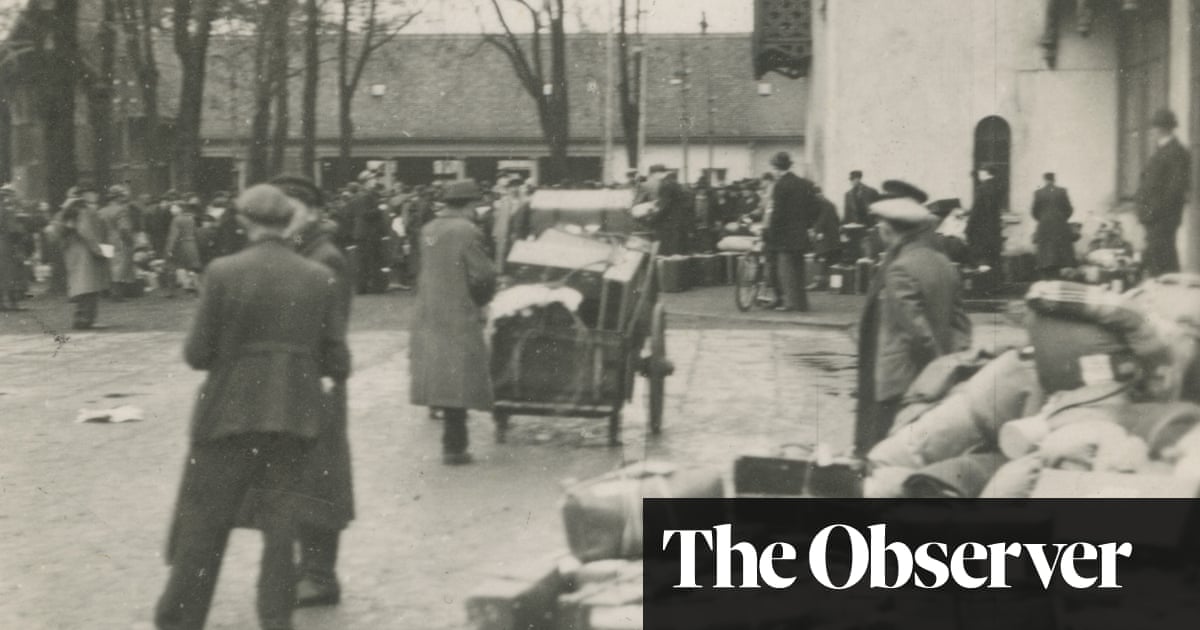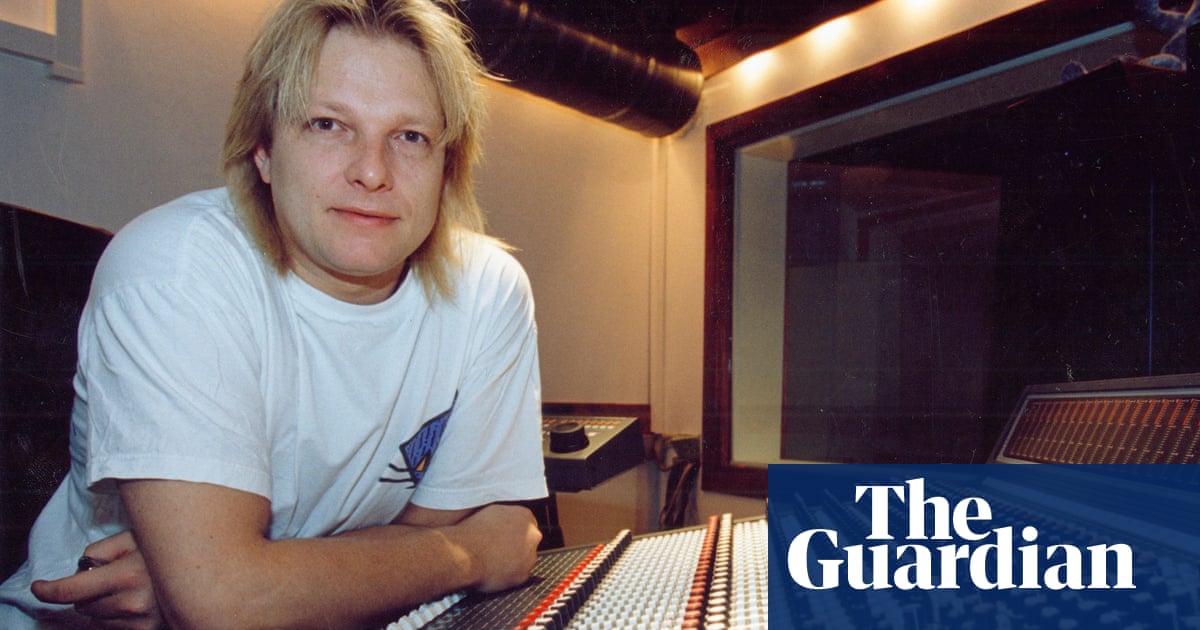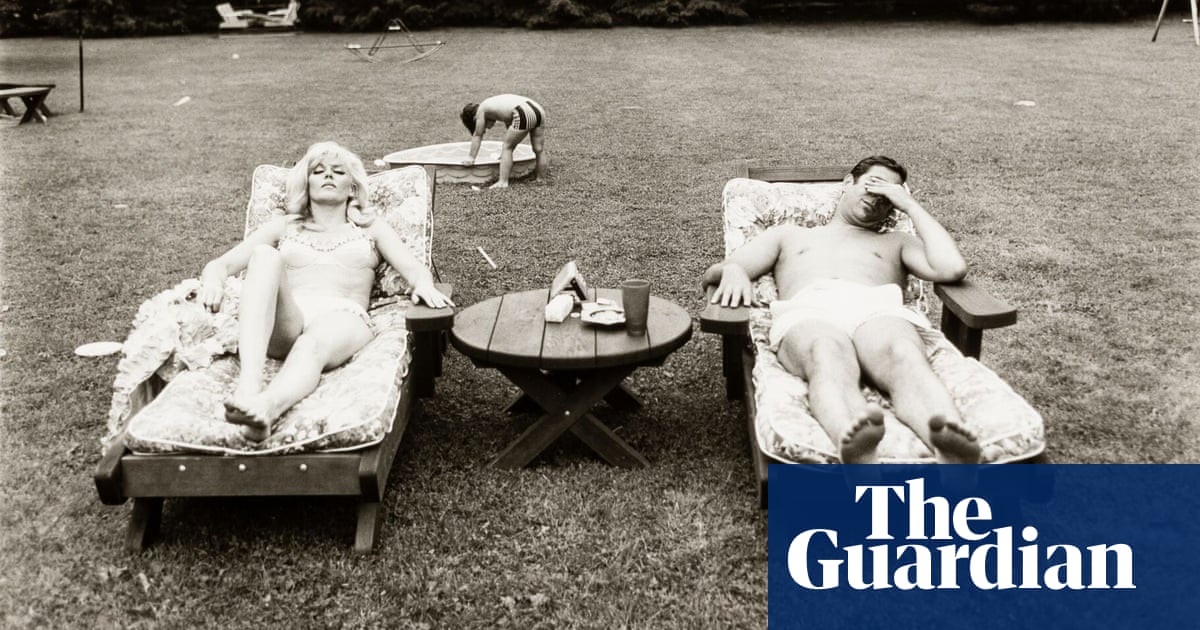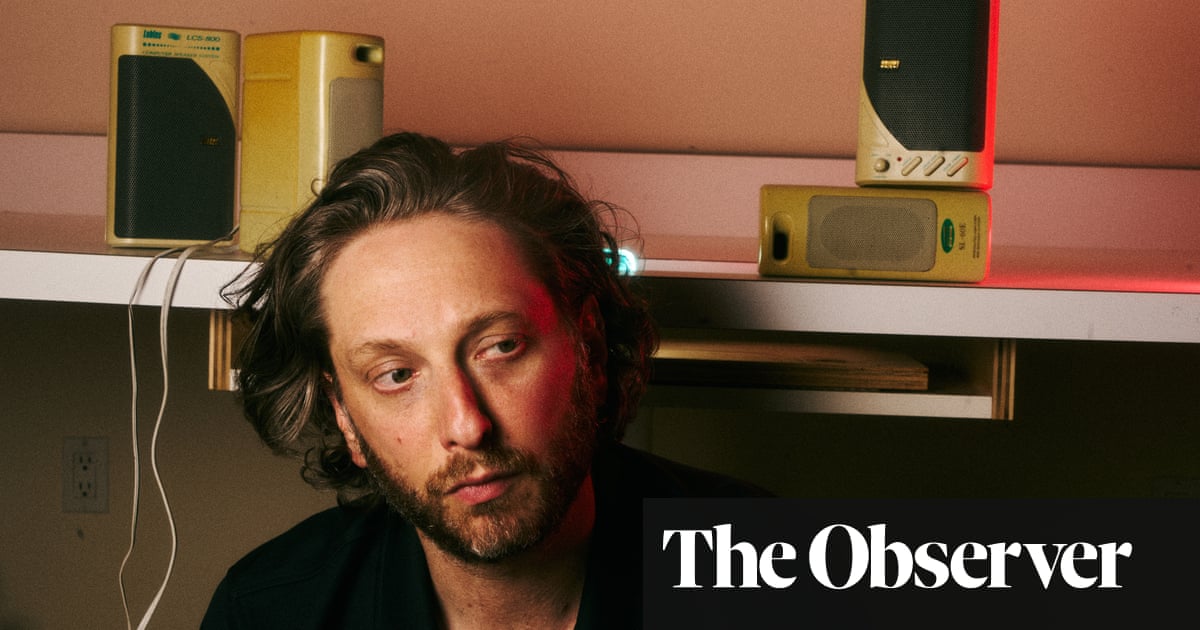
t has been a peculiar 2020 for many of us, but Daniel Lopatin’s has been odder than most. In January, the warped electronica that he makes under his pseudonym Oneohtrix Point Never soundtracked a hit Netflix movie, the nerve-shredding Adam Sandler thriller Uncut Gems. On 8 March, he tasted the primetime life, playing a song he had written with the Weeknd on Saturday Night Live. Daniel Craig introduced them, a few weeks before the new Bond film was due to be released. “I was shitting bricks if I can be totally candid,” the slightly less famous Daniel says.
Fifteen days later, Covid-19 locked down New York. Stuck in his flat, his studio out of bounds, Lopatin had to make music in his bedroom like he did when his recording career began. Granted, life had changed since his 2007 debut, Betrayed in the Octagon: he’d spearheaded a genre, vaporwave, by narcotically slowing down excerpts of well-known songs, and collaborated with David Byrne, FKA twigs and Iggy Pop. He still had a poky bedroom, though. “If I’d pushed my chair back making music, it would hit the bed and I’d end up hurting my ankle,” he laughs, sitting in the same room on an autumn afternoon.
These circumstances, however, inspired him to look to his past, and even re-evaluate why he made music. It is no coincidence that his new album is titled Magic Oneohtrix Point Never, recalling how Lopatin’s original pseudonym came from a playful mishearing of the name of a Boston soft-rock station from his youth (Magic 106.7). The album is an expansive, experimental tribute to radio culture, and how it cossets us in our lives, especially in times of crisis.
Lopatin was born in Wayland, Massachusetts in 1982 to Russian-Jewish emigres Susanna, a piano teacher and musicologist, and Leonid, a hardware engineer. (Daniel inherited his dad’s 1983 Roland Juno-60 synthesiser; it is still his trademark instrument.) Radio was “a big place for my imagination, as well as my musical education,” he explains. “We had really good college radio and freeform radio in Massachusetts. I loved that you could go in one fell swoop from hearing Charles Mingus to Anal Cunt to Phil Collins.”
He made mixtapes obsessively as a teenager, loving the magic that went into making them as you waited to hear a song you loved, before rewinding them and recording over them: “They contain your taste but also slivers of things that weren’t intended to be there.” He tried to recreate that feeling this year after getting back into radio via Elara.FM, an online, New York-based radio station hastily set up by Uncut Gems directors the Safdie brothers. Featuring mixtapes from people Lopatin knew peripherally and others he didn’t, it reminded him how much he loved getting “little peers” into other people’s musical worlds, how they were “sharing something almost unconscious, and very special about themselves”.
Oneohtrix Point Never’s music has always warped sounds together from the past and the present. He does this in a way that is familiar yet fantastical, weird but full of wonder; pop hooks and thrilling rhythms making his music accessible. He explores big ideas through his work, too. On 2011’s Replica, he sampled TV adverts to comment on the decline of western knowledge. On 2015’s Garden of Delete, he messed around with grunge songs to recall how he felt during adolescence. His work is accessible because it’s as moving as it is discombobulating, like the mysterious workings of memory itself.
As lockdown eased in July, Lopatin took his work-in-progress to an Airbnb “owned by nice hippies” in western Massachusetts. There, he watched rabbits frolic in the garden as he put his album together, pacing it to begin in the morning and move kaleidoscopically, twitchily, towards the night. “I realised I’d wanted to make an album as a kind of projection of my life; of my life of listening,” he explains. He also realised that radio brought people together, which meant a lot to him in Trump’s America. “Before the pandemic, we were already living in this [JG] Ballard-esque dystopia where everyone’s more into networking than physical contact. It scares the shit out of me.” Radio is a medium that shows another side of ourselves, he adds, “our unbelievable capacity to share ourselves with each other”.
Magic … is more direct, Lopatin says, because it is based round songs, although all are delivered in his trademark glitchy, ghostly way. He also packs in the guests. Caroline Polachek sings on Long Road Home, a string-slathered, supernatural shadow of an 80s pop epic. Arca contributes menacing whispers to Shifting. Then there is No Nightmares, a beautiful power ballad for the world’s most melancholic robot. It just happens that the melancholy robot is Abel Tesfaye, AKA the multi-million-selling the Weeknd.
Tesfaye and Lopatin’s friendship began in 2017; the Canadian megastar had got in touch after loving the latter’s pulsing, ambient soundtrack to the 2017 Safdie brothers Robert Pattinson-starring crime thriller Good Time. No Nightmares emerged the first time they recorded together, a year later, at Electric Lady Studios in New York. “I was just playing these very simple Procol Harum chords, Abel jumped in the booth, and sang this wonderful top line over them. Everyone was just in shock.” Lopatin also saw how full-on fame was when he and Tesfaye popped out to get a coffee and to walk Tesfaye’s dog. “It was a nightmare. A shitshow. All these cars moving very slowly, just people staring – weird, beady eyes of strangers.” He shudders; this isn’t the life for him. “The discomfort I felt for him was probably my own.”
The pair collaborated again on Uncut Gems, another Safdie brothers production, in which the Weeknd has a small but important role (the soundtrack ended up being electronica only). Lopatin loves working with Josh and Benny Safdie. “They see the score as the undercurrent of the psyche of their hero and they want to, like, push it, push it, push it.” His original suggestions were too polite for them, he says. “They were all: ‘When do you start really doing that OPN thing?’ I was like: ‘Are you serious?’” The final result was a piece of spine-chilling genius, like a 21st-century take on Giorgio Moroder.
Lopatin then co-wrote three tracks on the Weeknd’s After Hours, a UK and US No 1. This includes the track they played on SNL, Scared to Live (its inclusion of a clip of Elton John’s Your Song is a classic piece of OPN trickery). Tesfaye even became a vital part of the development of Magic; Lopatin sent him tracks to review every week. “I needed someone to give me perspective on what I was doing as a music fan because he’s got unbelievable taste,” he says. “He was like: ‘Burn it down! This is an OPN record!’ I was like: ‘Oh yeah, I forgot!’ He was really in my corner as a friend.” They plan to meet up again in January if the pandemic allows, and “pick up where we started”.
One senses that more fame will come the way of the man who “shit bricks” on SNL, but Lopatin insists he is happy to stand behind the megastars. Still, lockdown has made him reach out and reignited his excitement about what his music can do, so he’s bound to go further.
“My music always feels best to me when things are kind of changing and transforming,” he beams. “When the dial is spinning.”
Magic Oneohtrix Point Never is out this Friday on Warp





